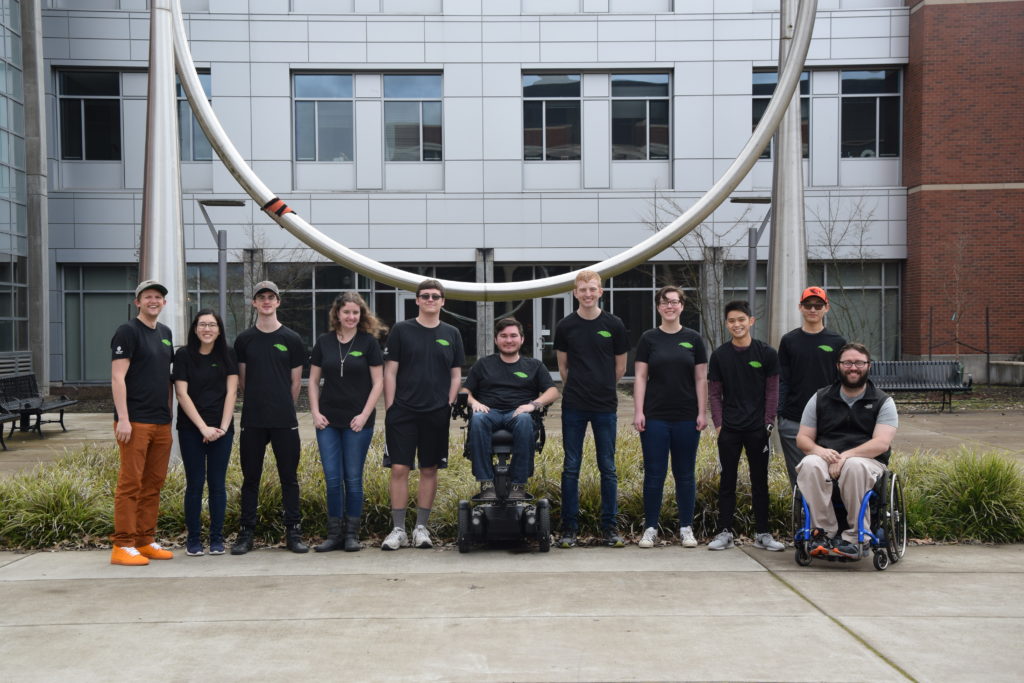
Matt Harrison grew up in Arizona until he was 13 years old, during his sophomore year of high school, his family moved to Oklahoma where his father pursued a degree in chicken farming. Growing up on the farm Harrison was exposed to various forms of machinery but occasionally these machines would break.
“We did not have time to pay someone to come fix it because if we did it probably meant the animals were not going to get fed the next day,” Harrison said. “This taught me that everything is fixable and to not be scared to open up things and figure out what went wrong.” From this point on Harrison developed the thought of becoming a full-time engineer.
Harrison developed the LEAFS project which stands for Leading and Enabling Adolescent Futures in STEM. The goal of this project is to inspire youths with disabilities to be engaged with STEM, and developing lesson plans that are accessible for them to learn. Harrison was inspired by his oldest brother Robbie to create a project that would help other people.
“He was a great example of taking care of people who others may have dismissed,” Harrison said. “He was a state champion wrestler who always made time for the little guy. In high school, there was a person named Bart who was autistic and because of this, he did not have many friends. Robbie regularly sat and ate lunch with him and they developed a lifelong friendship.”
Harrison was also inspired by his advisor Dr. Joshua Gess. Harrison had applied for a position in Gess’s lab and when he first met him, he rolled out from behind his desk in a wheelchair. However, Gess exhibited a positive attitude and by working alongside him, Harrison was able to start getting his ideas for LEAF started.
“I can help teach those who experience a disability that they can do it and there are tools for them to succeed and second, get able body peers around to help and learn from them while they teach them science,” Harrison said. “It is a win-win situation for everyone involved.”
Harrison proposed the idea of the project to EPICS in IEEE who provided him with a grant to help with the funding of the project. EPICS in IEEE is mentioned on the flyers for the project so people know that it is a project funded by IEEE. Many EPICS projects aim to collaborate students with local community organizations by doing so they are able to develop engineering solutions to unique community problems.
Harrison was assisted by other OSU students to get the project going. He was introduced to Dr. Sam Logan, who had a group of students involved in a group called, “Adaptive Technology Engineering Network,” they shared a similar goal with Harrison.
“Their focus is like-minded to LEAFS mission plan of using engineering to make the world more accessible,” Harrison said. “At the time they only had a small project they were working on, I coordinated a meeting with them to pitch my idea and the rest has been history.”
By working together, they were able to develop strategies to effectively produce lesson plans for those with disabilities. Harrison claims that being patient was very important and that learning can be stunted for some due to teachers becoming impatient. When developing lesson plans Harrison also said that he had to put himself in the participant’s shoes this helped create lesson plans that are accessible for everyone.
LEAFS Team at Oregon State Univ.
Harrison explained how he worked together with his team to create a lesson plan for a participant named Gavin, who was involved in a car accident that resulted in him losing the ability to walk, talk, and use fine motor skills in his arms. The goal was to develop a way for Gavin to use a computer for programming, 3D modeling, and other activities.
“We developed a curriculum around the Tobii Dynavox eye-tracking system,” Harrison said. “This piece of hardware tracks the user’s eye movement and uses it as the mouse cursor; this allowed Gavin to fully participate in all of the computer aspects.”
Ultimately, in the future, Harrison hopes to further develop the LEAFS program so that people can benefit from a university that is close to them. To help make this a reality Harrison has been working to further promote LEAFS.
“I have teamed up with business professor Dr. Johnny Chen and we are developing a marketing plan to help spread the word about the LEAFS program,” Harrison said. Dr. Chen’s son participated in the inaugural event and has graciously volunteered his time to help.”
Through LEAFs, Harrison wants to allow students to flex their imagination. “LEAFS is about giving people a chance to find their passion because once found and pursued the world will be changed.”

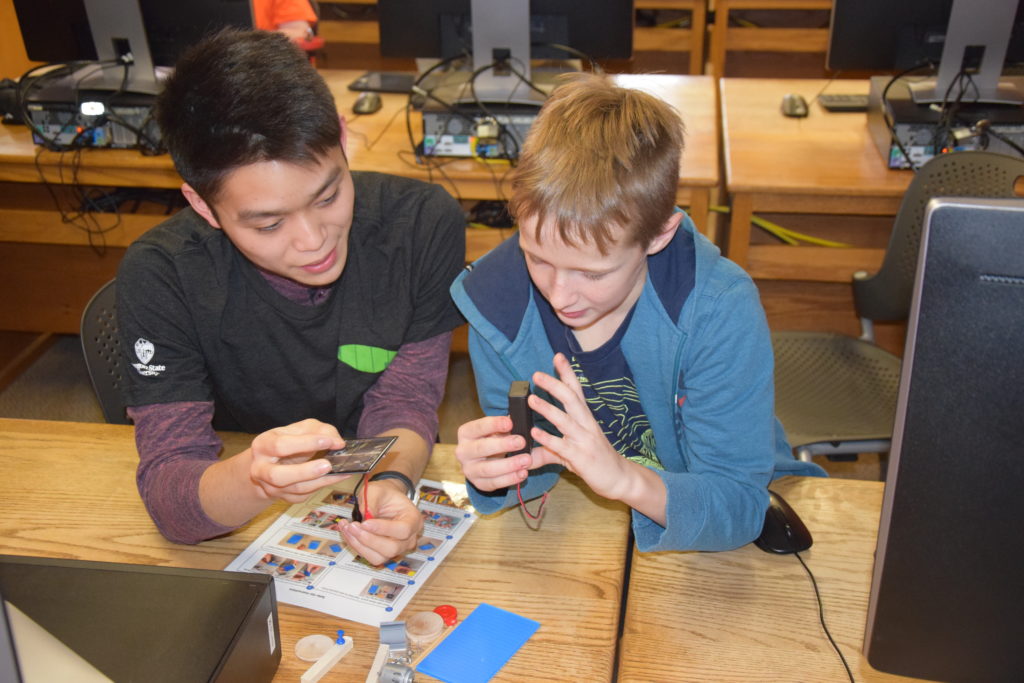
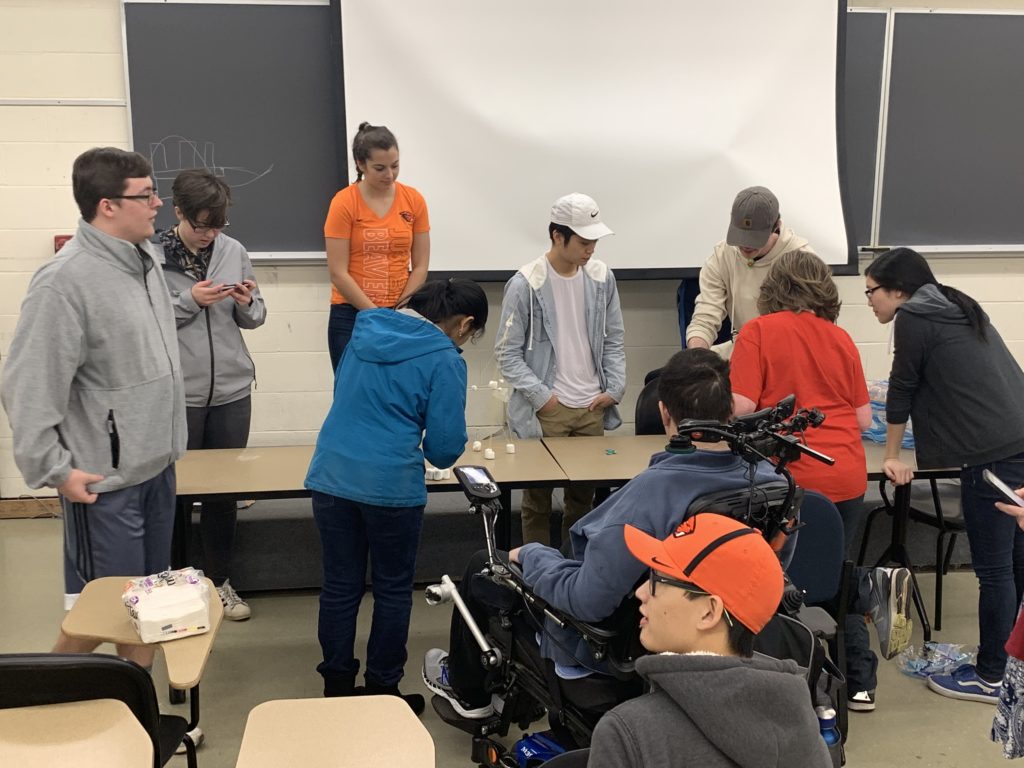
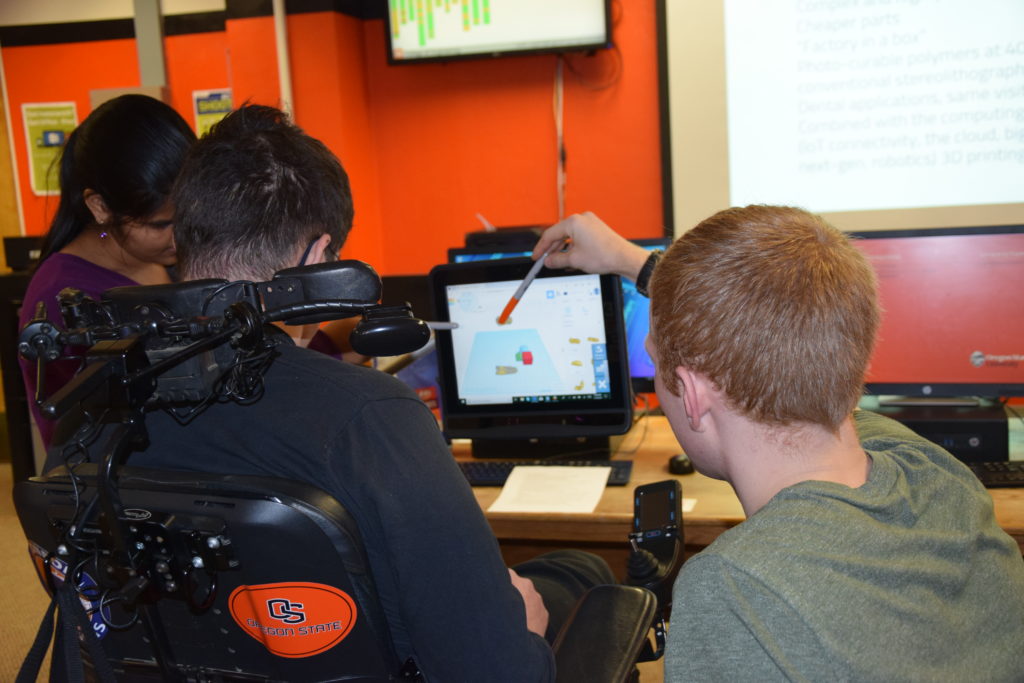
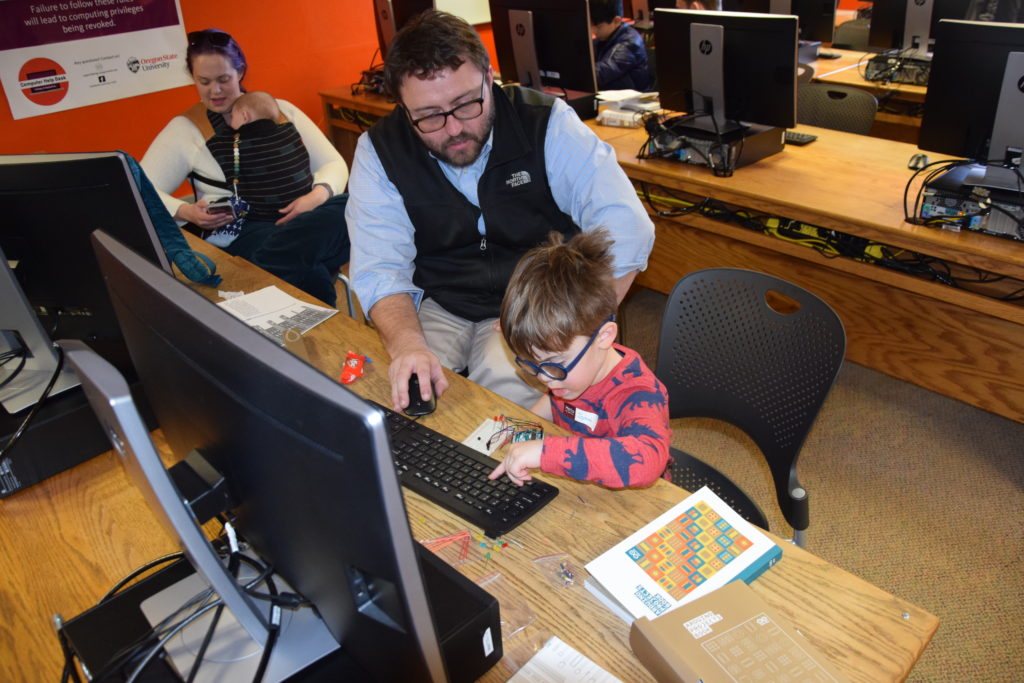
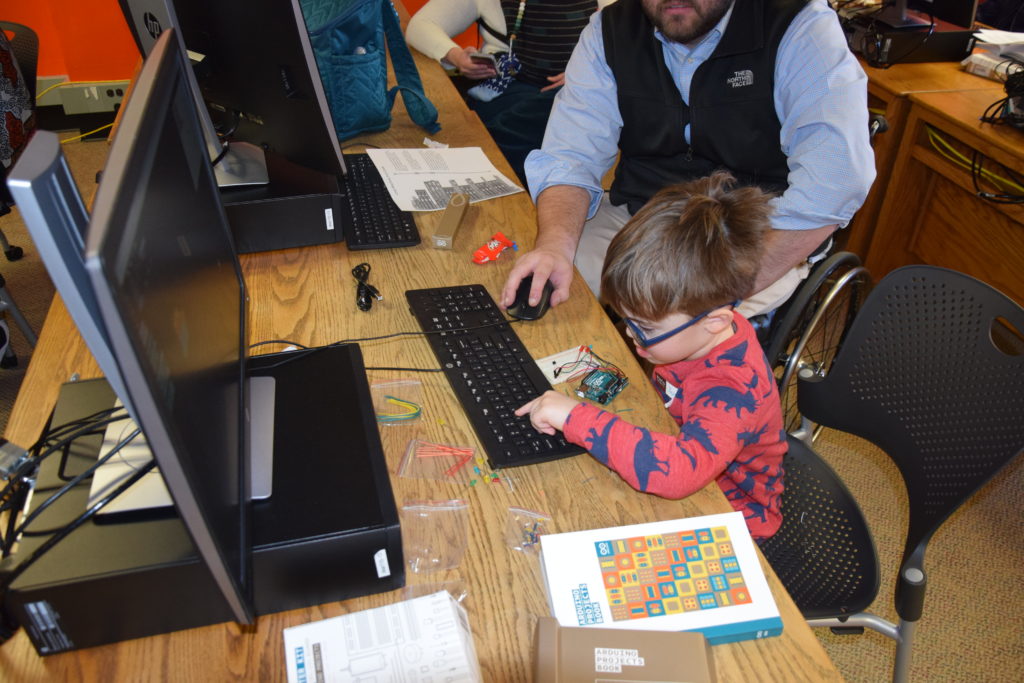
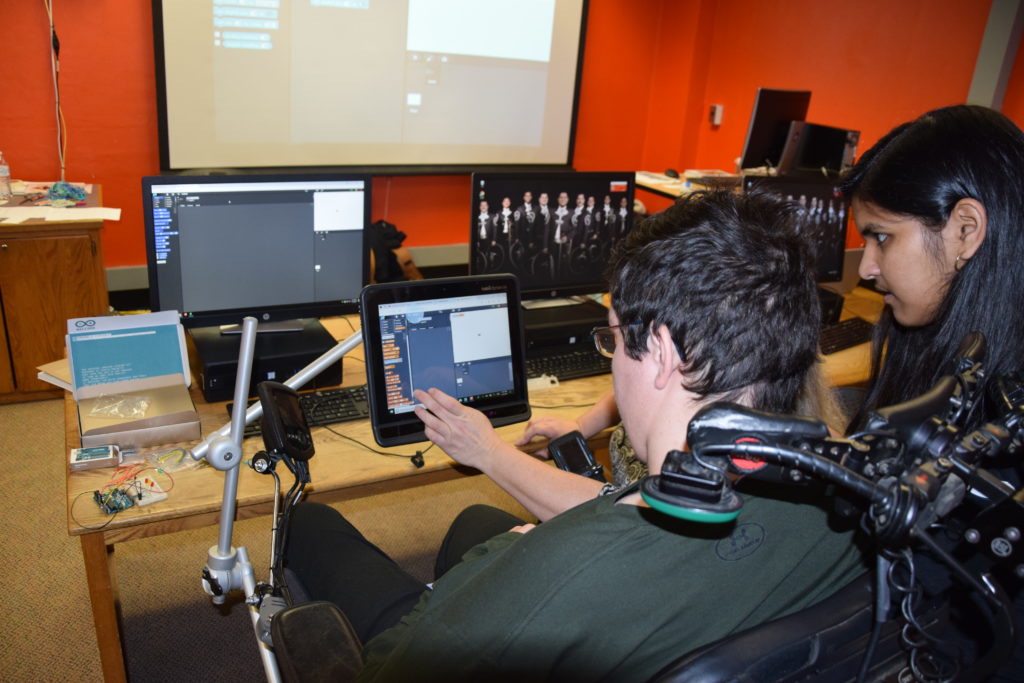
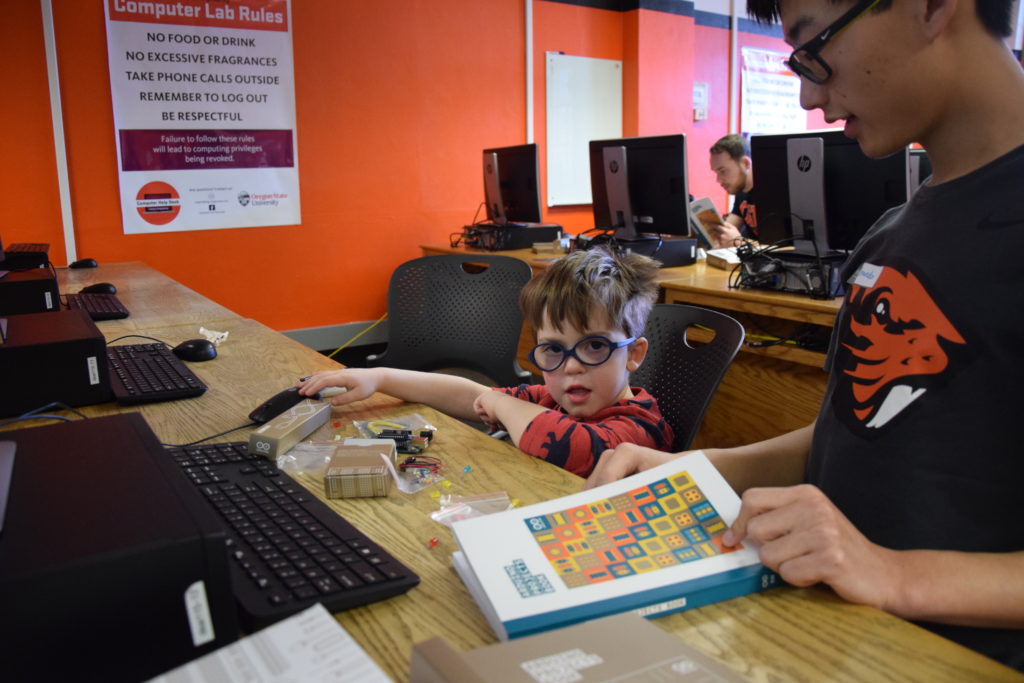
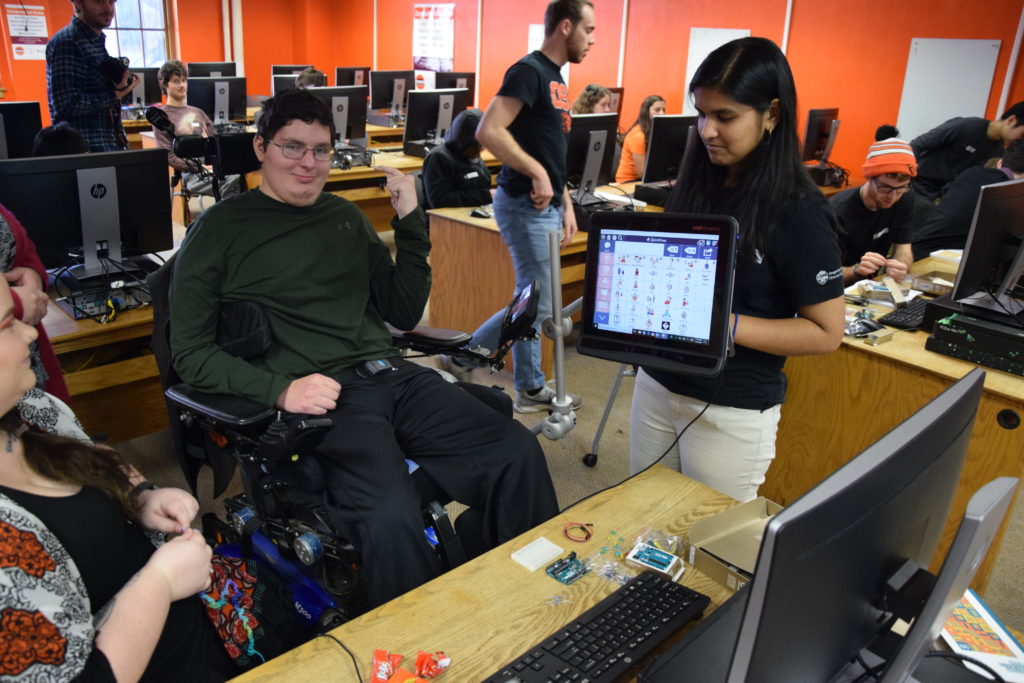
Recent Comments